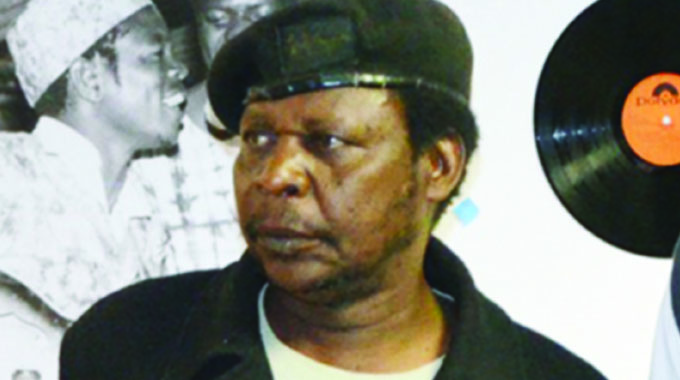Music: Powerful soundtrack of Zimbabwe’s liberation struggle

Marilyn Mutize
Correspondent
The attainment of independence on April 18, 1980, marked a watershed moment in Zimbabwe’s history, not only politically, but culturally as well.
Amidst the jubilation and hope that accompanied the raising of the Zimbabwean flag, there emerged a burgeoning music scene that would play an instrumental role in the nation’s liberation struggle.
Prior to independence, Zimbabwe, then known as Rhodesia, was under the grip of oppressive colonial rule. Black artistes faced stringent censorship and monitoring, stifling their creative expression. However, despite these challenges, musicians such as the late Oliver Mtukudzi, Thomas Mapfumo, Dickson ‘Chinx’ Chingaira, Zex Manatsa, among many others, emerged as bold voices against the injustices of the regime.
Their lyrics became a potent form of resistance, serving to conscientise the masses and galvanise support for the liberation movement. Through subtle metaphors and allegories, they articulated the grievances of the oppressed, urging their fellow Zimbabweans to rise up and reclaim their dignity.
Mtukudzi, revered as a national icon, used his music as a tool for social commentary and activism. Songs like “Dzandimomotera” and “Mutavara” not only highlighted the harsh realities of life under colonial rule, but also instilled a sense of hope and resilience among listeners. Despite facing threats and suppression from the Rhodesian authorities, Mtukudzi remained steadfast in his commitment to speaking the truth.
Similarly, Mapfumo, known as the “Lion of Zimbabwe,” faced persecution for his outspokenness. Brief spells of imprisonment failed to silence him; instead, they fuelled his determination to amplify the voices of the oppressed. Tracks such as “Zimbabwe Yevatema” and “Ndinofarira Zimbabwe” became anthems of resistance, inspiring a generation to fight for freedom.
Women musicians, too, played a pivotal role in the liberation struggle, despite facing unique challenges. Figures like Dorothy Masuka and Stella Chiweshe used their music to challenge the status quo in a male-dominated industry. Their contributions, though often overlooked, were no less significant in shaping the cultural landscape of Zimbabwe.
With the dawn of independence in 1980, Zimbabwe witnessed a cultural renaissance. The music industry experienced unprecedented growth, with new genres emerging and a wave of talented artistes coming to the fore.
Sungura, a genre born out of the post-independence era, captured the zeitgeist of the nation, reflecting the aspirations and struggles of ordinary Zimbabweans.
After the attainment of independence, gospel music, too experienced a revival, with artistes such as Mechanic Manyeruke paving the way for a new generation of talent. Female artistes such as Ivy Kombo, Shingisai Suluma, and Fungisai Zvakavapano-Mashavave emerged as powerful voices of faith and hope, resonating with audiences across the country.
Yet, the legacy of Zimbabwe’s liberation struggle extends far beyond the realm of music. It is a testament to the resilience and determination of a people who refused to be silenced in the face of oppression.
It is a reminder that the struggle for freedom is not won solely on the battlefield, but also through the power of culture and creativity.
As Zimbabwe celebrates its 44th Independence anniversary, it is essential to reflect on the transformative role that music played in shaping the nation’s history. From the clandestine gatherings of freedom fighters to the raucous concerts of post-independence euphoria, music has been a constant companion on Zimbabwe’s journey towards freedom and self-determination.
In a world where the shadows of tyranny and injustice loom large, casting doubt on the very fabric of society, the enduring lessons gleaned from Zimbabwe’s arduous liberation struggle stand as beacons of guidance and inspiration. Despite the passage of time, the echoes of resilience, unity, and unwavering determination showcased during that tumultuous era resonate profoundly in the present day. It is a testament to the indomitable human spirit and its capacity to triumph over adversity.
Music, with its unparalleled ability to transcend linguistic, cultural, and ideological barriers, emerges as a potent force in this narrative of resilience. It serves as a timeless testimony to the universal language of humanity, capable of touching hearts, stirring souls, and fostering solidarity in the face of oppression. Through the haunting melodies of struggle, the defiant rhythms of resistance, and the anthems of liberation, music becomes not merely a form of expression but a profound reflection of the collective yearning for justice and freedom.
As we pay tribute to the artistes and activists who paved the way for Zimbabwe’s independence, let us also reaffirm our commitment to upholding the values of freedom, equality, and justice. May their songs continue to inspire and embolden future generations to stand up and speak out against oppression in all its forms.
In the poignant words of the late Mtukudzi, “Music is the weapon of the future”. These words encapsulate the profound impact that music has wielded throughout history, transcending mere entertainment to become a potent force for social change and liberation.
As we navigate the complexities of our world, let us heed Mtukudzi’s wisdom and recognise the transformative power of music. It has the ability to transcend barriers, unite disparate voices, and ignite flames of hope even in the darkest of times.
Let us, therefore, embrace music as not only a source of solace and inspiration but also as a tool for fostering unity, amplifying the voices of the marginalised, and catalysing meaningful societal transformation.









Comments